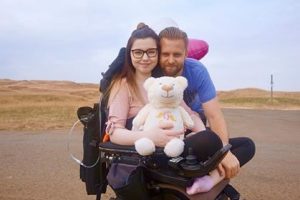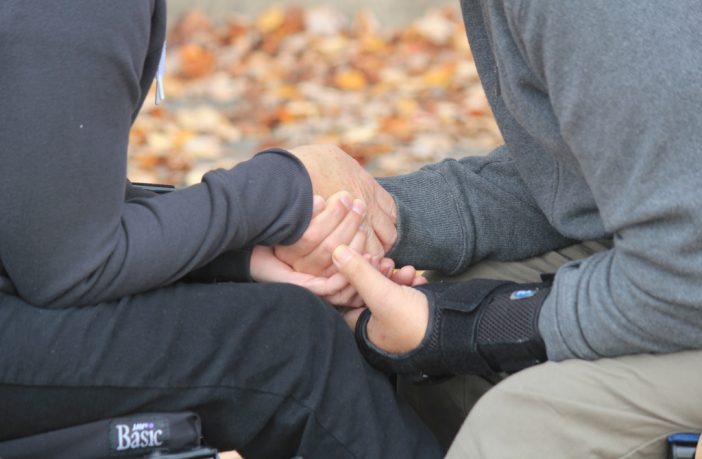How do young people facing life-limiting or life-threatening conditions handle relationships and talk about sex?
Making friends, exploring sex and developing relationships are an important part of becoming an adult. But young people with life-limiting or life-threatening conditions have limited opportunities to learn about relationships and sex. Family, carers and health practitioners can feel ill-prepared to discuss sex with young people.
Supporting young people with an invisible topic
Now a project led by The Open University – Talking about…sex and relationships: Young people speak out – will help these young people navigate this sensitive subject. With Hospice UK, the project will develop educational resources to help young people have conversations about sex, intimacy and relationships with their family, carers or professional support staff. Health practitioners will better support them on this invisible topic through knowledge, resources and a better understanding of the views and experiences of young people themselves. It has been awarded £40,000 by the Improving Transitions for Young People Fund, run by the charity Together for Short Lives.
Dr Sarah Earle, Director of the Open University’s Priority Research Area in Health & Wellbeing, says:
“Sometimes sex can be difficult to talk about, especially if you are a young person with a life-limiting or life-threatening condition. Over the next two years this project will support young people to talk about sex, relationships and intimacy, ensuring that their needs are met, and that they have every opportunity to live a rich and fulfilling life filled with friendship and fun.”
Navigating sexuality and relationships

Chloe with her partner, Jordan
Chloe is 23 and lives with her partner Jordan in Stratford-Upon-Avon. She feels there is a gap in education and awareness of the needs of young people with life-limiting conditions.
“I live with a number of conditions contributing to a life limiting condition and disabilities. This has been something I have dealt with since a young teenager, an age where puberty hits and young people usually grow into relationships and their sexual identity. As a young person with a disability this was something very different for me to navigate and with very limited support and resources it was something I feel I have navigated alone.
I am now blessed with an incredible partner Jordan, who I have been with for 3 years. We have also been trying to start to grow a family which sadly resulted in the loss of our daughter at 22 weeks and 3 miscarriages.
As a disabled person with life limiting illness planning to start a family I have faced difficulties in lack of understanding and ethical uncertainties that I feel the work of the OU-SA could have helped clarify massively. I strongly believe that the needs of young people in regards to sexuality and relationships when dealing with life limiting conditions and disability could be supported in a much better way.”
Support for this aspect of life
Lucy Watts MBE, who recently became an OU Honorary Graduate, is part of the OU Sexuality Alliance and is a disability advocate. She said:
“We all have differing experiences of sexuality, sex and relationships and have come together as we passionately believe that it is a normal part of growing up and we want to make sure we, as young people, and the professionals and individuals around us, have the tools and resources we need to explore and be supported with this aspect of our lives.”
Find out more about our research into health and wellbeing.



